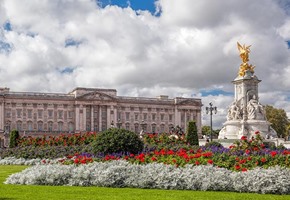
Royals and Rail: UK Train Journeys Fit for a King
28/04/2023 · By Ian Holt
Embark on UK train journeys fit for a king with Royals and Rail by Great Rail Journeys. Experience amazing regal travels all over the British Isles.
Read moreWales is a small country blessed with an abundance of highlights. Its coastline boasts several stunning, unspoilt beaches which are frequently voted as the best in Britain. Inland, the country is renowned for its diverse and outstanding natural beauty; nowhere more apparent than in Wales' Brecon Beacons and Snowdonia national parks. Besides accommodating the UK's second highest mountain, Mount Snowdon, Wales offers magnificent castles - both ruined and intact - to discover at every turn and historic towns and cities, each with its own unique appeal, to explore.
Find out more with a free brochure and enjoy weekly travel inspiration and offers in our e-newsletter.
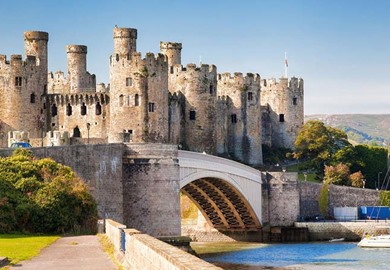
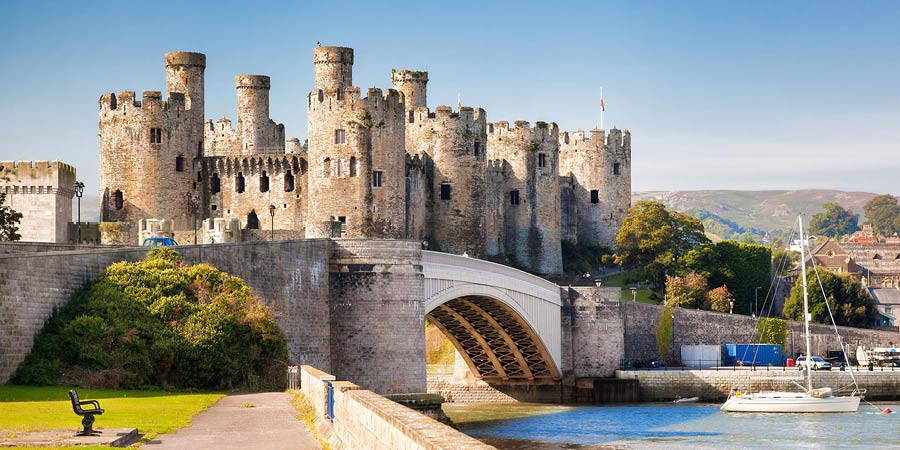
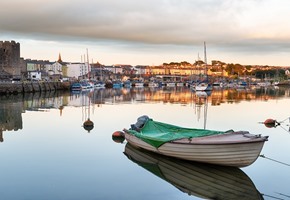
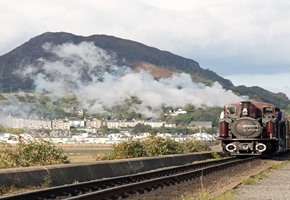
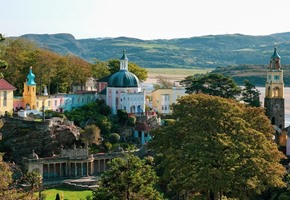
 (572 reviews)
(572 reviews)On this nostalgic escape, ride on celebrated railways, visit ancient castles and discover the beautiful gardens of north Wales. Journey through stunning scenery on the Ffestiniog Railway, the world's oldest independent line, and ascend Snowdon's summit on the Snowdon Mountain Railway. Step into the unique village of Portmeirion, whose design was...


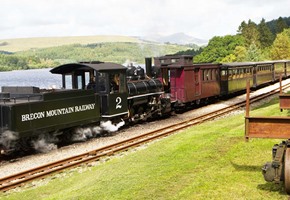
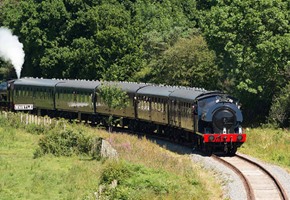
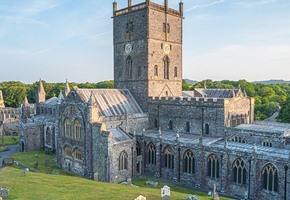
 (147 reviews)
(147 reviews)Join us on this delightful getaway to discover the unspoilt rural beauty and hidden treasures of South Wales - with trips aboard nostalgic steam trains into scenic, rugged landscapes, and exploring charming towns. From our base in Swansea, we journey on the Brecon Mountain Railway through the wonderful landscapes of the Brecon Beacons, ...
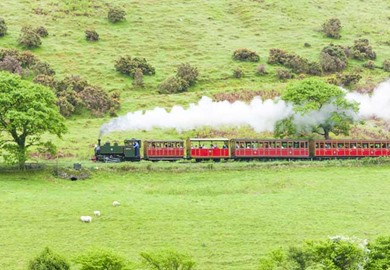
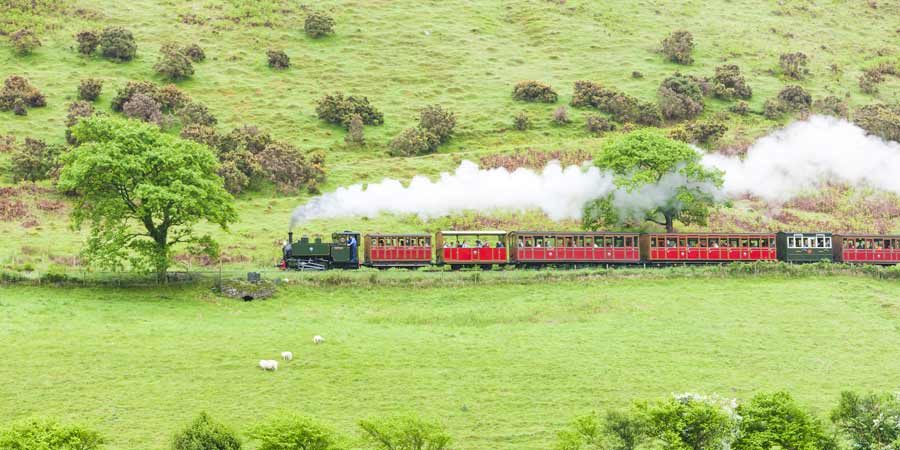
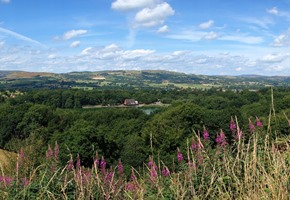
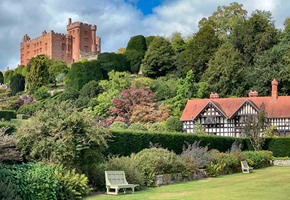
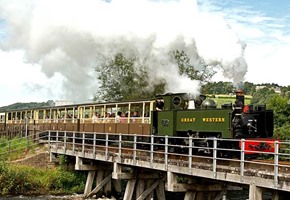
 (222 reviews)
(222 reviews)From picturesque coastlines to rolling hills, explore the beautiful heart of Wales on classic heritage rail journeys from a base in a picturesque spa town, Llandrindod Wells. Journey on the nostalgic Vale of Rheidol, Talyllyn and Welsh & Llanfair railways and join a ranger on a private tour of the Elan Valley, also known as the 'Welsh Lake...
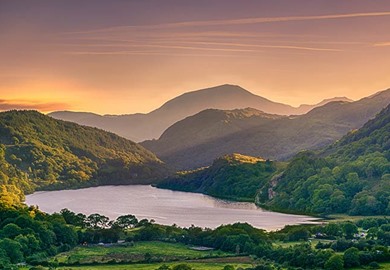
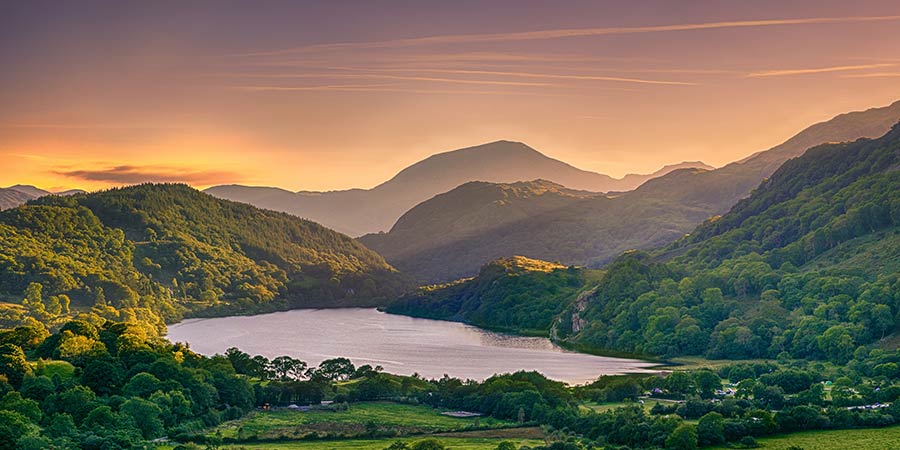
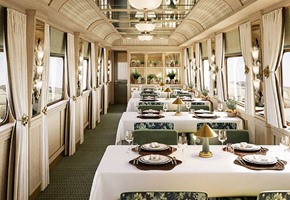
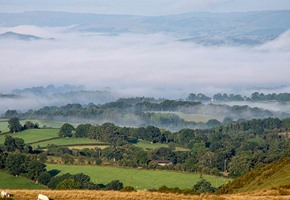
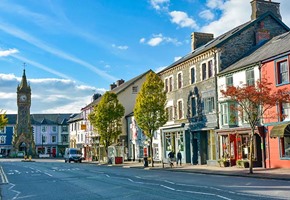
Amid quaint villages, lush valleys and kaleidoscopes of green, Wales springs to life on this three-night journey aboard the Belmond Britannic Explorer. After sipping gin cocktails on board in the Observation Car, disembark for a series of heartening adventures in charming Cymru. Marvel at some of the principality's most cherished...



At Great Rail Journeys we want our customers to enjoy the most pleasurable and memorable rail holiday in Wales. In a country that offers so many wonderful attractions and activities we provide tour itineraries that not only allow you to experience the very best of Wales but which also represent outstanding value for money.
The cost of our rail holidays in Wales includes all travel, quality overnight accommodation and an itinerary of exciting and enjoyable excursions as well as some meals such as breakfast or dinner, where applicable. Tour schedules also include ample free time to allow you to explore Welsh destinations in greater depth at your leisure or simply to unwind for a while.
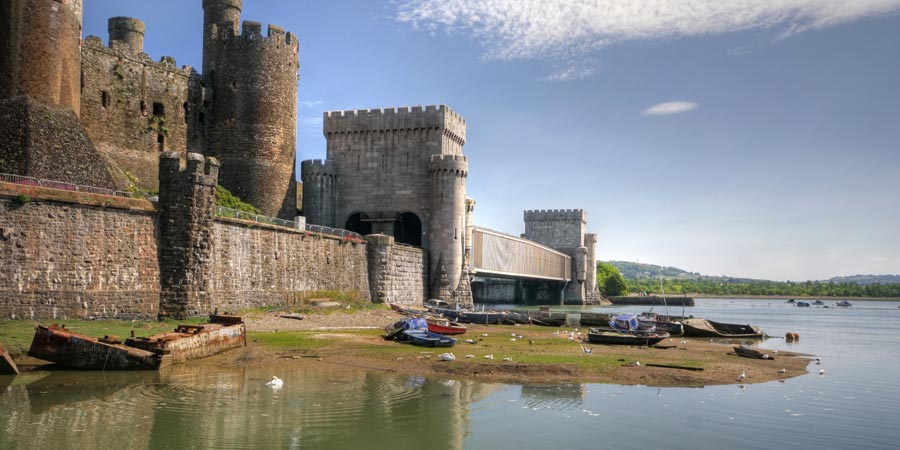
We choose our accommodation with care, ensuring that it is well-located, offers high standards of comfort, quality and service and is good value. We often select local, family-run hotels for their personal service and informal atmosphere, enabling guests to fully relax.
Each of our rail tours of Wales is facilitated by an experienced and friendly Tour Manager who is always on hand to answer questions, provide assistance and enable you to make the most of your time in Wales.
An aspect of Welsh life that is immediately obvious is that road signs and other signs are invariably displayed in both Welsh and English; the Welsh are rightly proud of their ancient language and it is taught in school, alongside English. Two of the country's significant cultural associations are with the sport of rugby, which elicits fanatical support, and with music and singing; hence Wales nickname 'the land of song'. Any opportunity to hear a Welsh male voice choir singing live should not be missed.
Unlike other European countries, Wales lacks an easily-defined cuisine although there are several specialities which originate in the country. These include laverbread, a gelatinous paste made from boiled and pureed seaweed which is traditionally rolled in oatmeal and fried; bara brith, a fruit loaf or tea cake also known as speckled bread; cawl, a Welsh stew of lamb and leeks and Welsh Cakes, a type of fruit scone cooked on an iron griddle. Despite its name, there is no hard evidence that Welsh Rarebit, a variation of cheese on toast, originated in Wales.
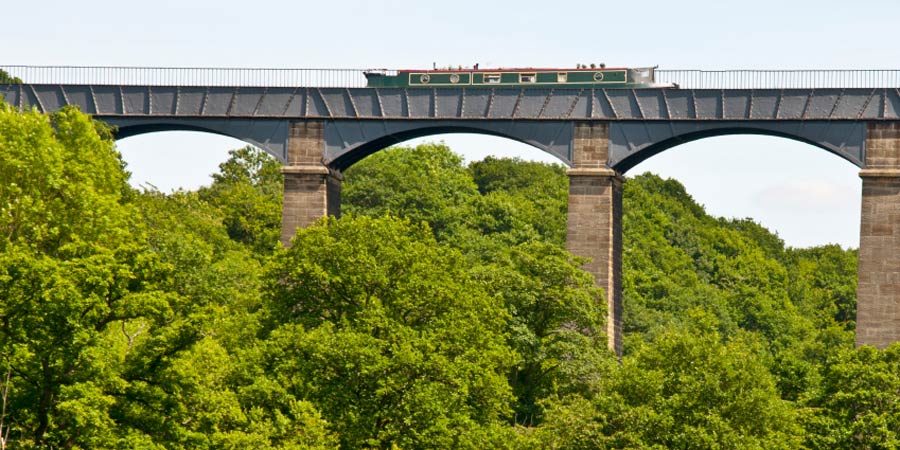
Wales possesses no fewer than ten narrow-gauge railways, with the Ffestiniog Railway, Welsh Highland Railway and the Snowdon Mountain Railway among the most popular. The Cambrian Coast railway line travels through a UNESCO Biosphere Site between between Machynlleth, Aberdovey and Borth.
Wales has a temperate, maritime climate and an unfortunate reputation as one of the wettest destinations in Europe. However, bad weather is often localised and the weather throughout Wales is subject to change at a moment's notice - particularly on higher ground. Summers (from May to August) are usually warm and sunny and in winter the temperature rarely dips below zero.
When you see Wales by train you travel through a bilingual country. Welsh (Cymry) is a language in its own right. Two phrases which are universally useful are diolch and os gwelwch yn dda. Diolch, pronounced dee-olch (the 'ch' sound is pronounced like it is in loch), is 'thank you' and os gwelwch yn dda, pronounced oss-gwel-ooch un thar (where the th in thar is a hard sound like in this) is 'please'.